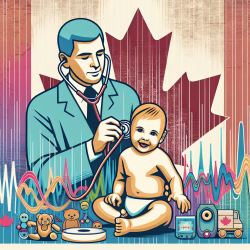Introduction
In the dynamic field of health policy-making, media interventions have emerged as a potent tool for influencing decisions and driving change. A recent systematic review titled Using media to impact health policy-making: an integrative systematic review provides valuable insights into how planned media interventions can affect the health policy-making process. This blog explores the findings of the review and offers practical advice for practitioners looking to harness the power of media in their work.
The Role of Media in Health Policy
Media interventions, defined as organized activities using various media channels, can inform, persuade, and motivate populations. In health care, these interventions can disseminate health-related information to the public, policymakers, and professionals, ultimately influencing individual behaviors and policy outcomes. The systematic review highlights the potential of media to set agendas, shape public opinion, and exert pressure on policymakers, thereby playing a critical role in the policy-making process.
Key Findings from the Review
The review analyzed 21 studies, revealing that media interventions can positively impact health policy when used as:
- Accountability tools: Media can prioritize and initiate policy discussions, increasing awareness among policymakers.
- Advocacy tools: Media can influence policy formulation by increasing public pressure and shaping policy content.
- Awareness tools: Media can lead to policy adoption by gaining public support and improving compliance with laws and regulations.
However, the review also noted a lack of reliable evidence due to methodological limitations and the indirect nature of the evidence. This underscores the need for further research, particularly on social media's role in health policy-making.
Practical Implications for Practitioners
Practitioners can leverage media interventions to enhance their impact on health policy by:
- Building relationships with media outlets: Collaborate with journalists and media professionals to ensure accurate and impactful coverage of health issues.
- Timing media interventions strategically: Align media campaigns with key policy discussions or legislative sessions to maximize influence.
- Using multi-component strategies: Combine media interventions with community engagement and advocacy efforts to amplify impact.
By incorporating these strategies, practitioners can effectively use media to advocate for policy changes that improve health outcomes for children and other vulnerable populations.
Encouraging Further Research
Given the limited evidence on the effectiveness of media interventions in health policy-making, there is a pressing need for more well-designed studies. Researchers are encouraged to explore the role of social media, which remains underrepresented in current literature. By advancing our understanding of media's impact on policy, we can develop more effective strategies to drive positive change in health care.
To read the original research paper, please follow this link: Using media to impact health policy-making: an integrative systematic review.










